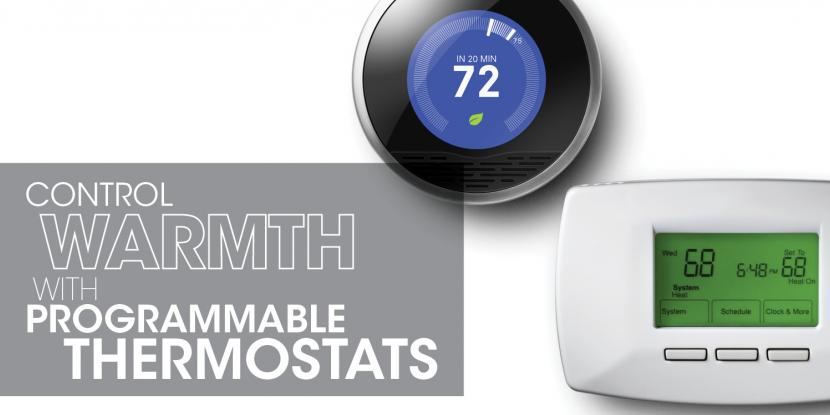
The exceptional reliability of HVAC equipment tempts homeowners into ignoring the importance of HVAC maintenance. It’s easy to think very little about an HVAC system until something goes wrong. But soaring utility bills or a lack of air conditioning on a sweltering day gets our attention in a hurry! HVAC maintenance is so important because it can help prevent these problems (and HVAC emergencies). Following our HVAC preventive maintenance checklist will help you save money while boosting your family’s comfort and health.
Benefits of HVAC Maintenance
It’s difficult to overstate the importance of HVAC maintenance. Regular equipment maintenance provides the following benefits:
- Reduces Utility Bills: Regular HVAC maintenance keeps your equipment working at peak energy efficiency, costing you less to use it.
- Prevents Costly Repairs: Routine maintenance can extend the life of your system and prevent damage leading to costly repairs.
- Fulfills Warranty Requirements: Many HVAC warranties run for 12-15 years, and they can save you significant money on repairs. However, most warranties require proof of regular maintenance for a claim to be paid.
- Improves Air Quality: Your HVAC system does more than heat and cool your home. It filters out dust, mites, and other allergens and pathogens, leaving the air in your home cleaner and healthier for all to breathe.
- Improves Safety: The National Fire Protection Association reports that over 44,000 house fires are started by faulty heating equipment every year.
- Provides Worry-Free Comfort Year-Round: Routine HVAC maintenance ensures your heating and cooling system is always ready when you need it.
When considering your family’s health, comfort, and budget, you can see why HVAC maintenance is important.
Knowing Your Type of System
Now that you know why HVAC maintenance is so essential, you just need a bit more information, and then we can get on with the maintenance checklist. Knowing what type of HVAC system you have is essential for troubleshooting issues. It will also guide you through the maintenance procedures your system requires.
HVAC Maintenance Procedure Checklist
You know that annual HVAC maintenance is necessary, but what exactly should be done? We have created this handy HVAC preventative maintenance checklist to visualize all the work your local HVAC pro does to keep your equipment working its best. Because the seasonal burdens on your HVAC equipment change so much, we recommend two maintenance visits per year.
Spring & Summer HVAC Maintenance Checklist
HVAC maintenance in the spring involves cleaning, testing, and evaluating your system as a whole and ensuring your air conditioning and ventilation are functioning at peak efficiency.
- Clean or replace the air filters.
- Clean the drain lines.
- Clean the evaporator and condenser coils.
- Clean air ducts of dust, debris, or mold.
- Replace any worn or stretched belts and pulleys.
- Check the refrigerant levels.
- Test for any leaks.
- Analyze and correct humidity levels.
- Test all thermostats, timers, and controls for accuracy.
- Check the electrical connections.
- Lubricate all motors, bearings, and moving parts.
- Check the operation of the fan motor.
- Evaluate the airflow through all blowers.
- Inspect the cabinet doors for warpage, leaks, or problems closing.
- Remove any debris around the equipment.
Fall & Winter HVAC Maintenance Checklist
What is done during HVAC maintenance in the fall is a review of all the work done in the spring and a focus on the heating and ventilation.
- Replace all heating equipment filters.
- Inspect the ignition burner component.
- Examine and clean the heat exchanger or heating elements.
- Check for gas leaks.
- Inspect and clean the flue and furnace attachment.
- Evaluate the gas pressure.
- Clear all drains and pans.
- Check pulley and belt tension and wear.
- Test all thermostats, timers, and controls for accuracy.
- Lubricate all motors, bearings, and moving parts.
- Check the operation of the fan motor.
- Evaluate the airflow through all blowers.
- Inspect the heat pump.
- Clean air ducts and vents.
Whether you need major repairs or preventative HVAC maintenance, you can count on the professionals at Aire Serv® for comprehensive HVAC services. We’re there when you need us most, and we don’t charge extra for nights, weekends, or holidays.
All our work is backed by the Neighborly Done Right PromiseTM because the job isn’t done until it’s done right.
Request an appointment today, and breathe easy with Aire Serv.
HVAC Maintenance FAQs
Now that we have covered why HVAC maintenance is important and the tasks that should be completed, let’s take a look at some of your questions.
What happens if I avoid HVAC maintenance?
If you skip regular HVAC maintenance, you risk higher utility bills due to a loss of energy efficiency. Small problems are more likely to grow into large ones requiring costly repairs. You will need to make significant repairs more often or replace the equipment sooner; the air quality and comfort of your home will be compromised. These are some of the top reasons why HVAC maintenance is important.
How much does HVAC preventative maintenance cost?
Annual preventative HVAC maintenance typically runs between $75 to $200, depending on how much needs to be done. Charging the refrigerant costs more. Between the savings on your utility bills and avoiding costly repairs, HVAC maintenance pays for itself.
Is HVAC maintenance worth it?
Yes. The importance of HVAC maintenance is demonstrated in both monetary savings and improved health and comfort for your family. Well-maintained equipment is less expensive to operate, avoids costly repairs, and prolongs the life of your system. Heating and cooling are more efficient and less expensive, and your indoor air quality is improved.
How often should you maintain your HVAC system?
Annual HVAC maintenance is necessary to avoid costly repairs. But to ensure your system works at peak efficiency all year long, we recommend that you have the heating system fully checked in the fall and the air conditioning system checked in the spring.

